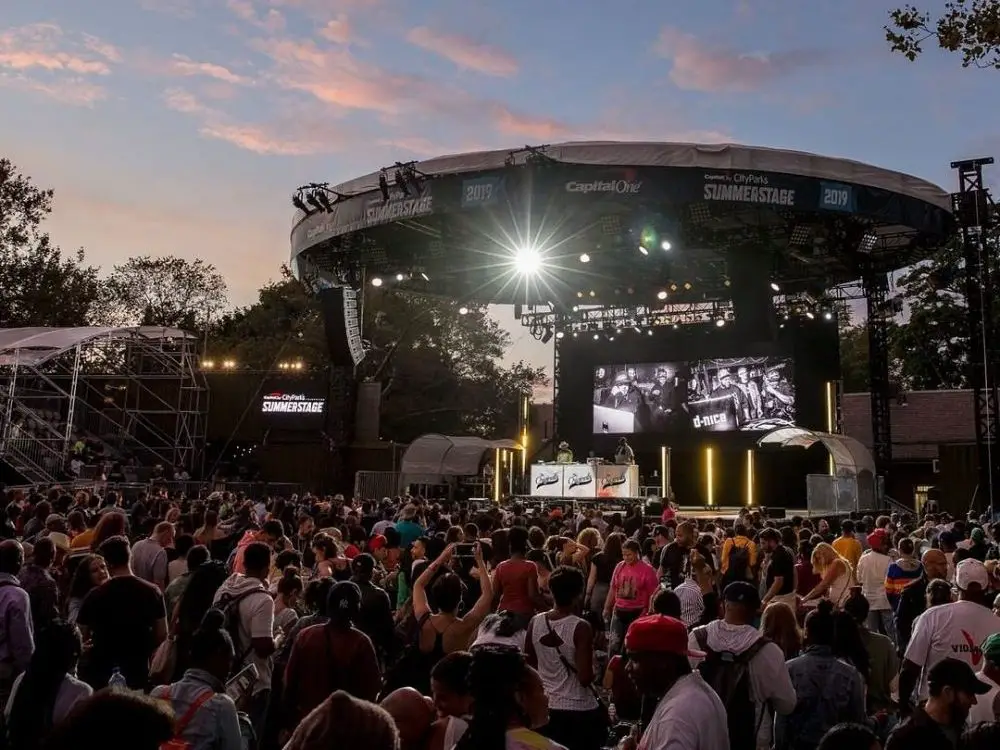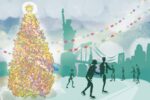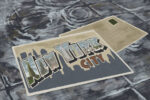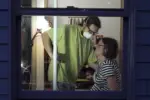New York City’s Central Park has played host to numerous iconic moments in concert history. As the centerpiece of the Big Apple’s park system, the 843-acre feat of urban design is the optimal outdoor performance venue for a borough that does not have an abundance of open space. The earliest notable concerts were those in the early 20th century, primarily organized by ragtime groups and marching bands.
As popular music evolved, so too did the park’s live music atmosphere, which was soon dominated by a select group of monumental artists. Elton John, Joan Baez, Garth Brooks and Dave Matthews are a few of the largest names to grace the park over the last four decades, with each show leaving a lasting impression upon the city’s consciousness. In recent years, Central Park has hosted the SummerStage series, a summer-long concert extravaganza that cultivates a diverse listening experience spanning genres and generations.
In-person concerts within Central Park were not possible throughout the height of the COVID-19 pandemic but after an easing of restrictions, the city government of New York is planning a spectacular return to form for the city’s front lawn. The park’s lush greenery is about to become the stage for another triumphant live performance that will join the canon of unforgettable Central Park shows.
Mayor Bill de Blasio has been planning for the “Central Park Homecoming” for several months, making a grand proclamation on Twitter that spurred immediate media coverage. After a period of declining tourism within the city, de Blasio hopes that the concert can serve as part of a larger cultural initiative to convey New York’s willingness and ability to serve as the nation’s cultural hub once again.
One of the greatest Central Park concerts in history is coming. Excited to announce that Paul Simon, Jennifer Hudson, and Bruce Springsteen will be performing at our Homecoming Concert and will help us welcome back our city! It's going to be an event for the ages. See you there. pic.twitter.com/1FtD5yJvxM
— Mayor Eric Adams (@NYCMayor) July 1, 2021
The concert’s date has been tentatively set for the end of August, timed to coincide with the broader “Homecoming Week” program that will put on smaller concerts and events scattered across all five boroughs. Early rough estimates predict that the Central Park concert will attract 60,000 attendees. While this figure sounds high given the restrictions on gathering sizes that have been in effect for more than a year, it pales in comparison to the classic Central Park concerts of the past, which occasionally saw hundreds of thousands flood onto the Great Lawn.
Controlling the size of the crowd will be of great importance to the Central Park Conservancy, the nonprofit that maintains the park’s grounds. The organization has historically been disapproving of large, organized gatherings because of their potential to disturb the carefully manicured natural environment. Many of the performances that are traditionally allowed in the park are smaller, annual events such as the Harlem Meer Performance Festival, which sees a small section of the park’s northern end come alive with local music and dance.
One of the other difficulties for the concert’s organizers will be enforcing safety measures regarding COVID. Thankfully, New York state has devised a vaccination passport system called the Excelsior Pass that will be implemented for large gatherings. Those who have been fully vaccinated may confirm their immunization status on a mobile app that can be shown to venue staff to gain entry.
While the pass is a technologically sound concept, it is entirely dependent upon the participation of the public. As of July 20, 56% of New York state residents have been fully vaccinated, though a Manhattan concert will undoubtedly attract residents of neighboring states who would not be familiar with the Excelsior Pass. The city government is planning to create a separate area for unvaccinated concertgoers, though this space will be intentionally smaller than the general lawn area for vaccinated guests.
Both the logistical difficulties of having a COVID-safe concert and the task of constructing an appealing musical experience require a capable showrunner, and the city government did not have to look far to find one. De Blasio personally sought out a great musical mind to orchestrate the task of assembling the large-scale event with limited time. His search yielded Clive Davis, an accomplished record producer and prominent Brooklyn native. Davis has welcomed the task of organizing the event, expressing his appreciation of Central Park’s relevance as a symbol of the city’s prowess. Hoping to add his concert to the exclusive list of events that will endure throughout history, Davis is seeking a lineup of six to eight world-renowned artists, preferably with a connection to New York.
Davis and the production company Live Nation have endeavored to make most tickets free, a remarkable sacrifice considering the event’s scale. Increasing the accessibility of the performance greatly contributes to the city government’s goal of cultivating a welcoming atmosphere for both residents and tourists.
Though much of the guest list has been shrouded in uncertainty, several names have been confirmed, including songwriting legend Bruce Springsteen, R&B superstar Jennifer Hudson and Paul Simon of Simon and Garfunkel fame. From these names alone, it is easy to see Davis’ aspirations to cultivate a distinctly New York atmosphere.
Springsteen is a native of neighboring New Jersey and is currently performing an extended concert series on Broadway. Paul Simon grew up in Queens and contributed to the folk revival movement of the 1960s that was centered in Lower Manhattan. The inclusion of Jennifer Hudson offers hope that the remaining lineup will represent a diversity of genres, which will be particularly important in expanding the variety of acts that are associated with Central Park.
It is remarkable that Davis has been able to secure the specific stars that currently sit on the concert’s roster, for both Springsteen and Simon are unlikely selections for large summer shows. Springsteen’s commitment on Broadway will overlap with the August date of the concert, while Simon has officially retired from concert tours but has made himself available for select charitable performances.
Even the limited lineup is a rarity for an event space that has largely seen smaller-scale and band-oriented performances in recent years. The New York Philharmonic is one notable example, performing summer concerts on the Great Lawn as part of the Concert in the Parks series. The upcoming concert will clearly break this template for Central Park concerts, potentially inspiring similarly sizeable future shows that could attract a more consistent stream of A-list musicians.
The concert will undoubtedly serve as a boost to public morale, a consequence that undoubtedly has political motives behind it. De Blasio, who is nearing the end of his tenure as the city’s mayor, will be able to lean on festivities such as the “Central Park Homecoming” to boost his approval rating as he exits office.
Following a wildly unsuccessful presidential bid in 2019 and in light of his consistent failure to address police brutality in New York, many residents see de Blasio as a deeply flawed politician. If the concert is well received in conjunction with the successful reopening of the city’s public spaces, it may be enough to alter the perception of his last months in office.
The outcomes of New York’s renaissance initiatives are highly dependent upon the success of high-profile endeavors like the Central Park Homecoming, an already promising event that conceptually achieves the stated goal of drawing attention back to New York. Everyone involved has ensured that the summer will not lack music in the park, one of the most quintessentially American and presently much-needed summertime traditions.

















